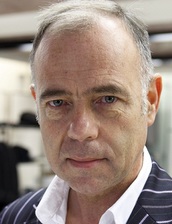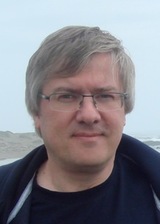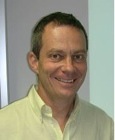| Ruslan Mitkov Resarch Institute for Information and Language Processing University of Wolverhampton Block MB, Stafford St. Wolverhampton WV1 1SB United Kingdom R.Mitkov@wlv.ac.uk | 
|
Abstract:
Research in anaphora resolution and coreference resolution have focused almost exclusively on the intrinsic evaluation of the algorithm/system. The extrinsic evaluation or the impact of an anaphora or coreference resolution module on a larger NLP system of which they are part, is an under- researched topic and this study seeks to fill in this gap. In his invited talk the speaker will discuss whether anaphora resolution and coreference can improve (and if they can, to what extent?) or not the performance of three NLP applications: text summarisation, text categorisation and textual entailment.
Ruslan Mitkov's Biography
Prof. Dr. Ruslan Mitkov's extensively cited research was highlighted as being internationally leading in the last UK Research Assessment Exercise (RAE 2008) and includes more than 170 publications (including 9 books) on topics covering but not limited to anaphora resolution, generation of multiple-choice tests, machine translation, translation memory, bilingual term extraction and translation universals. Dr. Mitkov is author of the monograph Anaphora resolution (Longman) and sole Editor of The Oxford Handbook of Computational Linguistics (Oxford University Press). Current prestigious projects include his role as Executive Editor of the Journal of Natural Language Engineering (Cambridge University Press), Editor-in-Chief of the Natural Language Processing book series of John Benjamins publishers, and Consulting Editor of Oxford University Press publications in Computational Linguistics. Prof. Mitkov has been invited as a keynote speaker at a number of international conferences and has acted as Programme Chair of various renowned international conferences. He has been an external examiner of doctoral theses and curricula in the UK and abroad, including Master's programmes on Translation and Translation Technology. Ruslan Mitkov received his MSc from the Humboldt University in Berlin, his PhD from the Technical University in Dresden and worked as a Research Professor at the Institute of Mathematics, Bulgarian Academy of Sciences, Sofia. Mitkov is Director of the Research Institute in Information and Language Processing (University of Wolverhampton) which was a top performer in the last RAE. In recognition of his outstanding professional/research achievements, Prof. Mitkov was recently awarded the title of Doctor Honoris Causa at Plovdiv University.

|
Walter Daelemans CLiPS Research Center University of Antwerp Prinsstraat 13, B-2000 Antwerpen Belgium Walter.Daelemans@ua.ac.be |
Abstract:
Some of the language variation in texts can be linked to psychological and sociological properties of their authors (personality, mental health, age, gender, education level, region, ...). Assuming that this link is robust and invariant, techniques can be developed to determine these psychological and sociological variables on the basis of text. This "computational stylometry" (or text profiling) gives rises to interesting applications such as gender and age detection from text, prediction of onset of Alzheimer's disease from writing, forensic applications, demographic marketing etc. After providing an overview of achievements and issues in text profiling, I will focus on a number of problematic cases: computational stylometry in applications with small amounts of training data, difficult text types (e.g. social media language), and finally on the question whether author (group) characteristics can be distinguished from other factors leading to linguistic variation: topic, register, and genre.
Walter Daelemans's Biography
Walter Daelemans studied linguistics and psycholinguistics at the Universities of Antwerp and Leuven and held research positions at the University of Nijmegen and the Artificial Intelligence Laboratory in Brussels. After finishing a Ph.D. (1987, University of Leuven) on an object-oriented model of Dutch morphology and phonology, he took up a lectureship in the Computational Linguistics group at Tilburg University where he founded the ILK (Induction of Linguistic Knowledge) research group. Since 1999, he is a full-time professor at the University of Antwerp (UA), teaching Computational Linguistics and co-directing the CLiPS research center. His main research areas are machine learning of natural language and (applications of) text understanding.
|
Adam Kilgarriff Lexical Computing Ltd. 71, Freshfield Road Brighton BN2 0BL East Sussex United Kingdom adam@lexmasterclass.com | 
|
Abstract:
Treatments of text type, in both general and computational linguistics, tend to be painfully unscientific. While everyone acknowledges that text type is important for nearly everything, an account of what the text types are, and how they differ, usually amounts to little more than saying "this is journalism, this is academic". The way forward is to see corpora as samples of text types, and to use corpus methods to, firstly, measure distances, and secondly, identify specific differences for qualitative analysis, for example by identifying keywords of one text type versus another. The keywords are, very often, pronouns.

 Conference Photos
Conference Photos